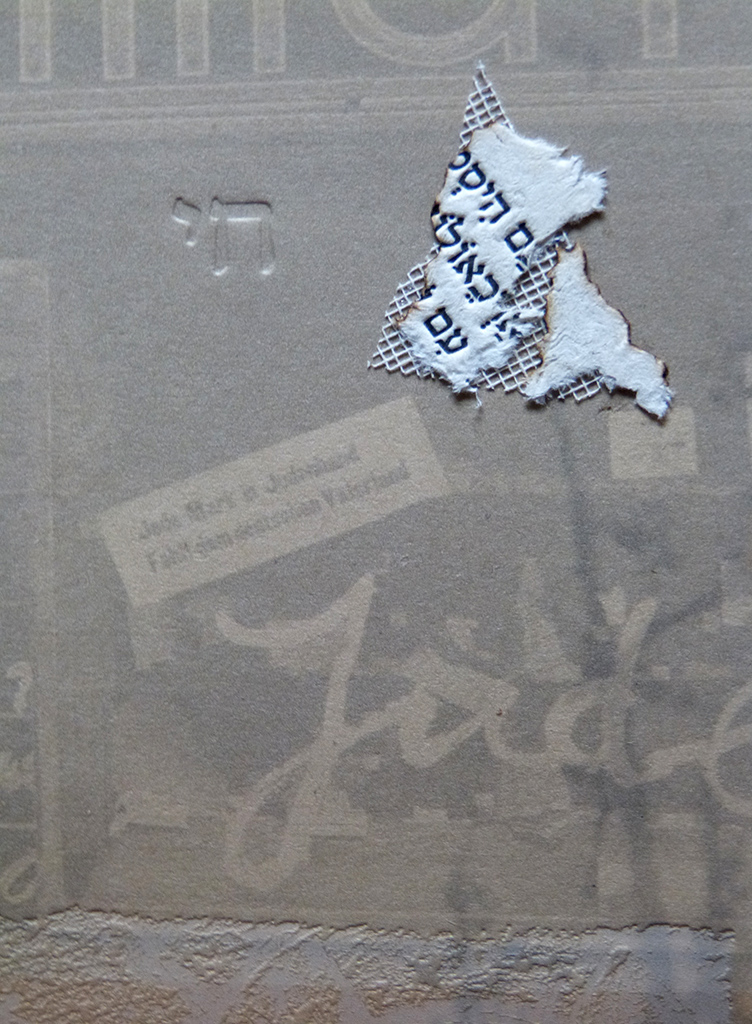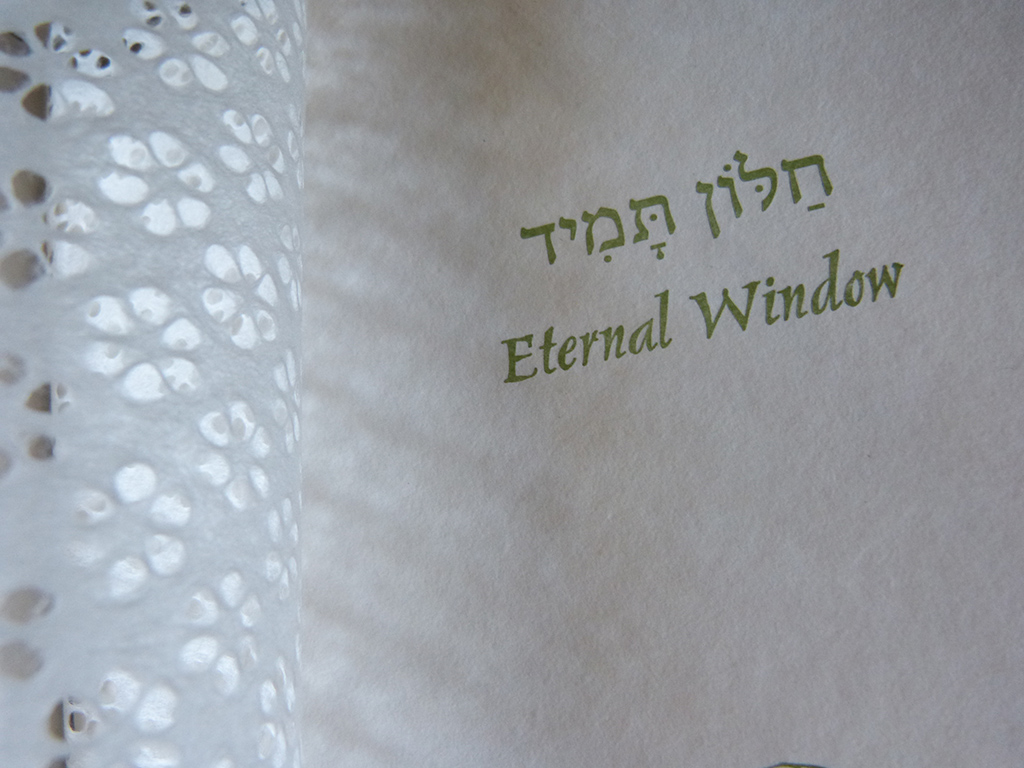
Rick Black
www.amichaiwindows.com
www.turtlelightpress.com
BIOGRAPHY
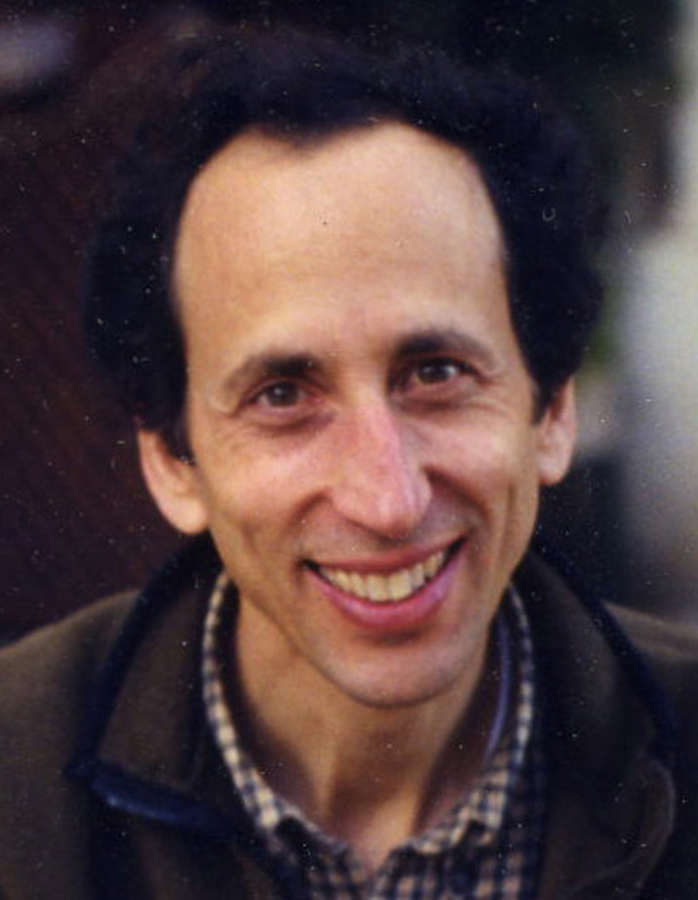 Rick Black is an award-winning book artist and poet. His artist books are represented in private and public collections, including the Library of Congress, Yale University and the U.S. Holocaust Memorial Museum.
Rick Black is an award-winning book artist and poet. His artist books are represented in private and public collections, including the Library of Congress, Yale University and the U.S. Holocaust Memorial Museum.
He received a B.A. from NYU and did post-graduate work in Hebrew literature at Hebrew University in Jerusalem. He has studied at both the Center for Book Arts in New York and Pyramid Atlantic in Maryland. In 2019, he received the 2019 Isaac Anolic Jewish Book Arts Award.
A journalist for many years, Rick worked overseas for three years in the Jerusalem bureau of The New York Times. While he enjoyed reporting, he was intent on pursuing his love of literature and books. After studying at the Center for Book Arts in New York City, he founded his own imprint, Turtle Light Press. It specializes in artist books and prints, haiku titles, and digital photography.
In 2017, Rick completed The Amichai Windows, a ten-year project of translation, research, design, letterpress printing and hand bookbinding. A collection of 18 poems by renown Israeli poet Yehuda Amichai, The Amichai Windows opens a window onto love, war, and being Jewish today. Multi-layered collages play off each of the Amichai poems by combining archival photos of Jewish life with gold leaf embellishments, blind embossments and botanical tip-ons.
Aside from book art, Rick's own poetry collection, Star of David, won Poetica Magazine’s 2012 poetry chapbook contest for contemporary Jewish writing. It was named one of the best poetry books by Split This Rock in 2013. A reading of Star of David was held in the Middle Eastern & African Division of the Library of Congress.
Rick has also garnered several international awards for his haiku poetry. His poems and translations have appeared in The Atlanta Review, Midstream, U.S. 1 Worksheets, Frogpond, Cricket, RawNervz, Blithe Spirit, Still, and other journals. A New Jersey native, Rick now lives in Arlington, Virginia, with his wife and daughter.
ARTIST STATEMENT
In these tumultuous times, both in America and abroad, I endeavor to create an intimate space in which to recharge ourselves and deepen our perspective. I strive to provide a haven where people can experience a sense of beauty and solace. I am fascinated by the combination of words, images and form. When I’m making an artist book, I always ask myself how I can best integrate the spirit of the text with the work’s sculptural form and design. For me, words and images should always be integrally related. I think that an artist book should be a tactile object that lends pleasure, too.
For instance in The Amichai Windows, a limited edition of 18 poems by the renown Israeli poet Yehuda Amichai, I strove to create an intimate, haptic experience. I wanted people to experience the work not only by reading the poems but by lifting a curtain, handling the triptychs, and discovering the blind embossments.
Almost every aspect of The Amichai Windows is symbolic: the simulacrum enclosure of a Jerusalem window, the rough textured papers that mimic Jerusalem stone, the olive green silk that evokes the dusky Jerusalem landscape. I have endeavored to evoke meaning in a multiplicity of ways.
I am toying with the materiality of the book itself as well as the visibility of images and words. Clockhands, curtains and bookmarks float among words and visual images. These multi-layered spreads—which include letterpressed poems, blind-embossed images, gold leaf, tipped-on papers and botanicals—function like dreamscapes, thereby creating additional layers of meaning.
I have also spun my own metaphors out of Amichai’s poems. For example, in one of the poems, The Jews, I have reproduced a photo of a shopfront with anti-Semitic graffiti from Nazi Germany. Inside one of the windows, I have blind embossed the Hebrew word חי, “chai.” This word, which means “alive” or “lives” is hidden in each of the triptychs as a tribute to Amichai— in fact, it is the very last part of his name.
I also put it in this window in particular as a way of saying, “See, we are still here and we are still alive!” In addition, you’ll see a torn bit of super, the fine mesh that helps form the spine of a book. I am using the bookmaker’s material as a metaphor for the burning of books that occurred in Nazi Germany. I am also toying here with the word itself, “super,” and the idea of racial superiority.
I hope that my work will resonate deeply.
ARTIST'S WORK
The Amichai Windows, Closed Enclosure, 2017, digital prints in tryptichs with letterpressed poems, 18 x 16 inches
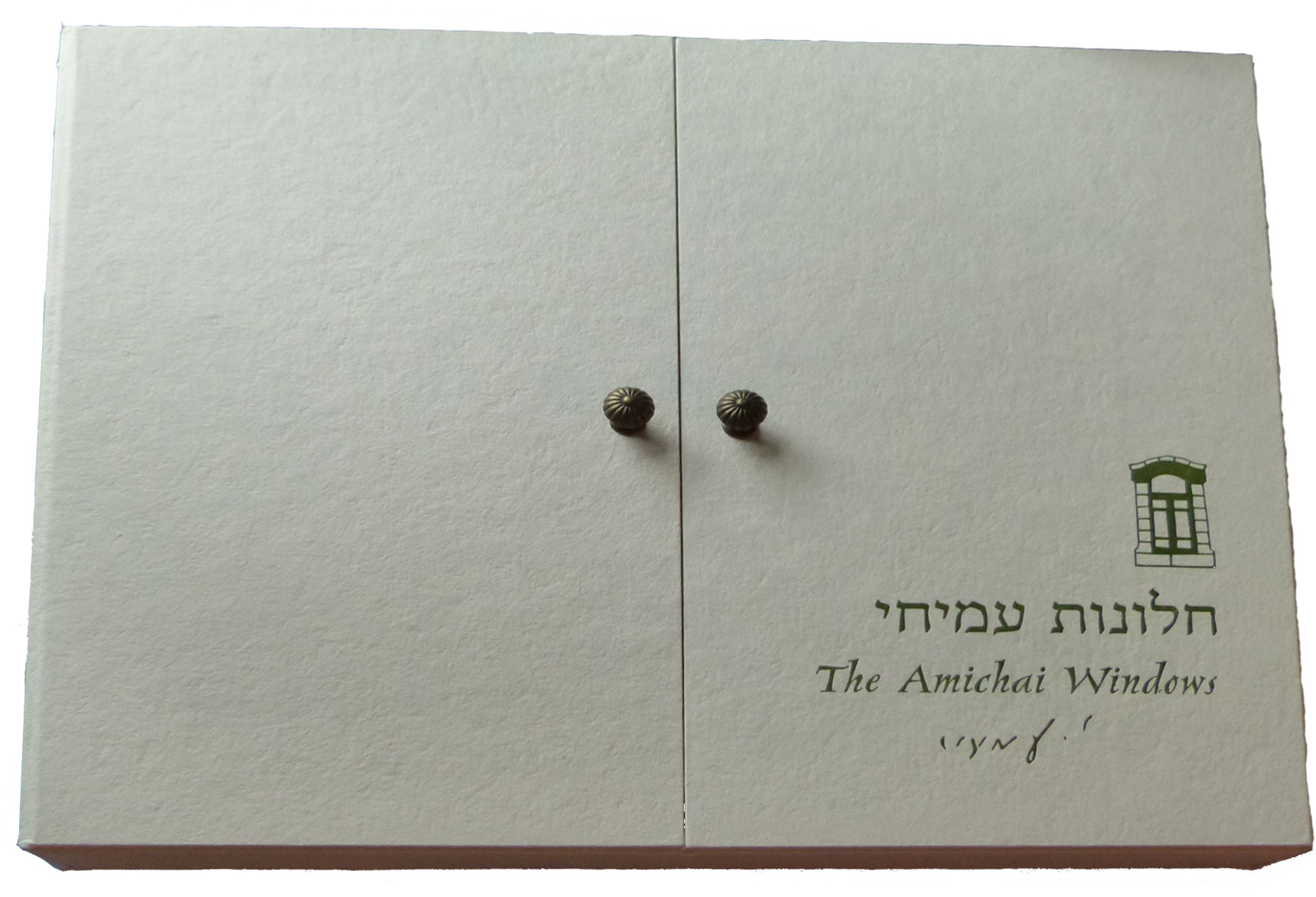
The Amichai Windows, Interior of Opened Enclosure, 2017, digital prints in tryptichs with letterpressed poems
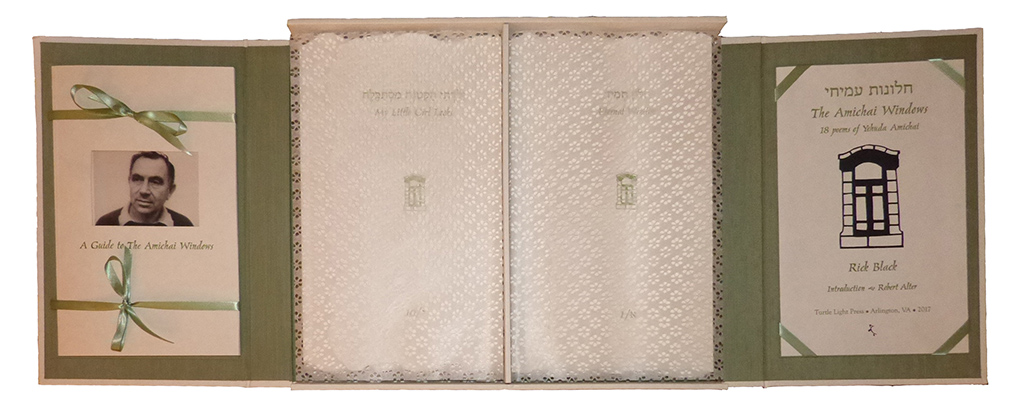
The Amichai Windows, Detail of Eternal Window (opening tryptich detail), 2017, digital print in tryptich with letterpressed poem, 21 x 13 inches fully opened
The Amichai Windows, Detail of Eternal Window, 2017, digital print in tryptich with letterpressed poem, 21 x 13 inches fully opened
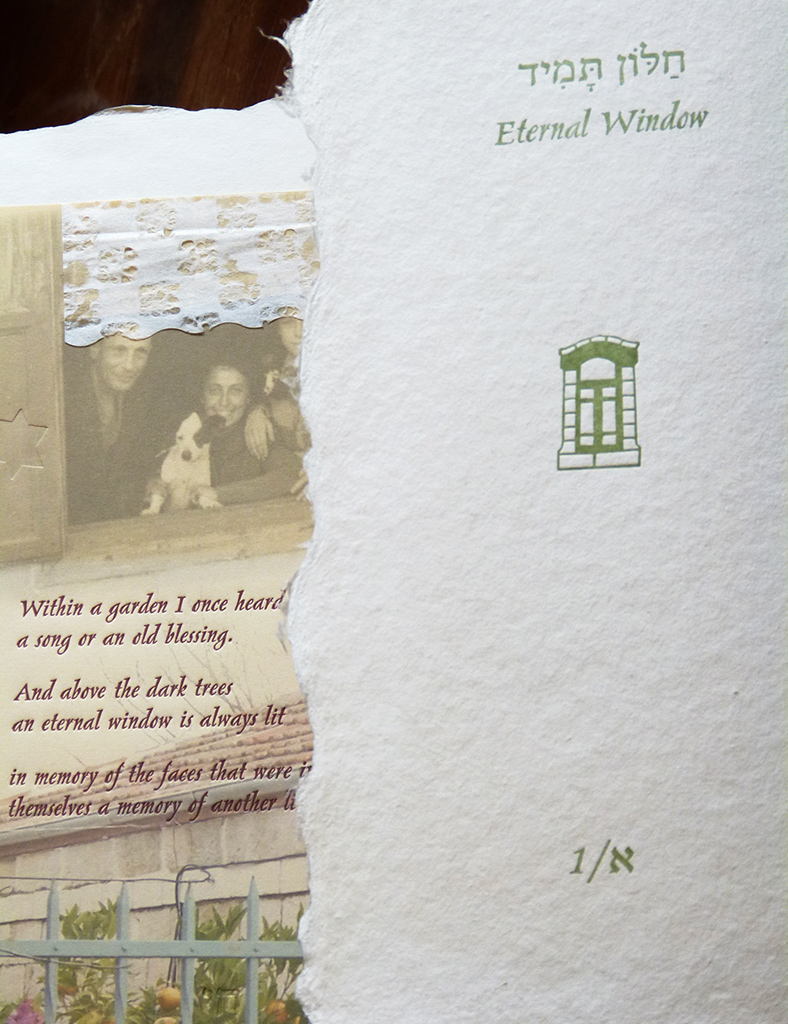
The Amichai Windows, Eternal Window, 2017, digital print in tryptich with letterpressed poem, 21 x 13 inches fully opened
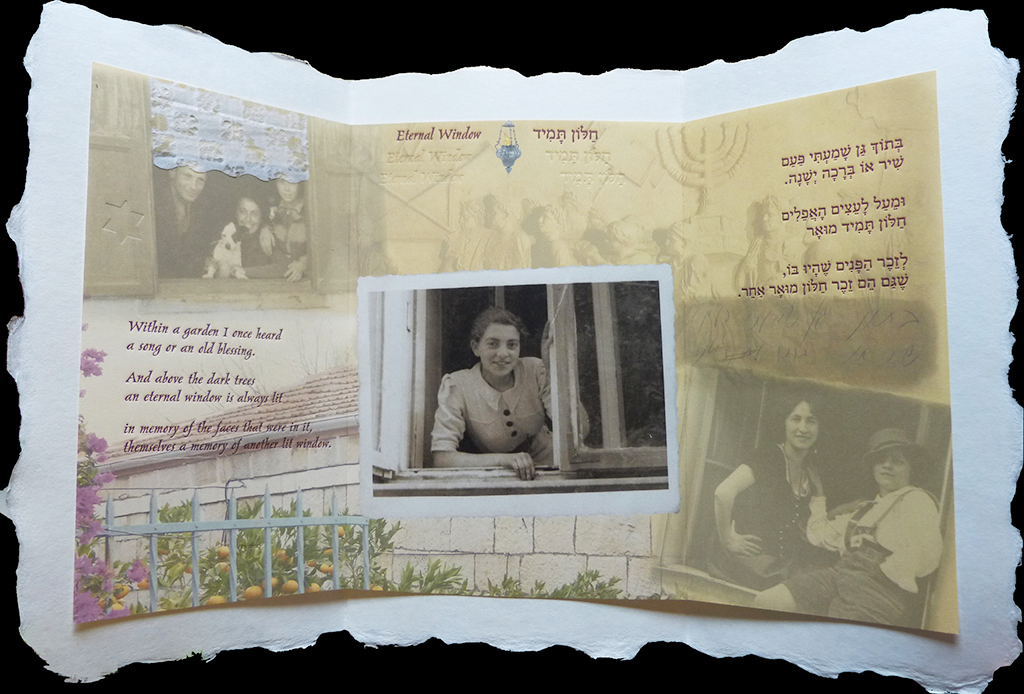
The Amichai Windows, Yom Kippur, 2017, digital print in tryptich with letterpressed poem, 21 x 13 inches fully opened

The Amichai Windows, My Mother Baked the Whole World For Me, 2017, digital print in tryptich with letterpressed poem, 21 x 13 inches fully opened
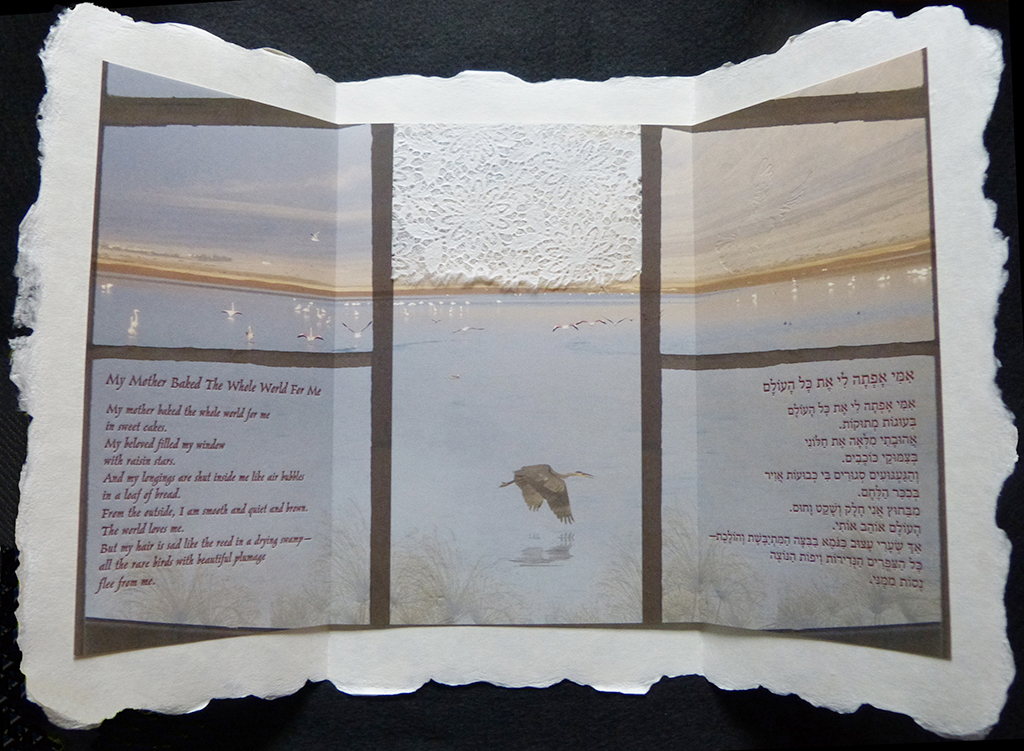
The Amichai Windows, God’s Hand in the World, 2017, digital print in tryptich with letterpressed poem, 21 x 13 inches fully opened
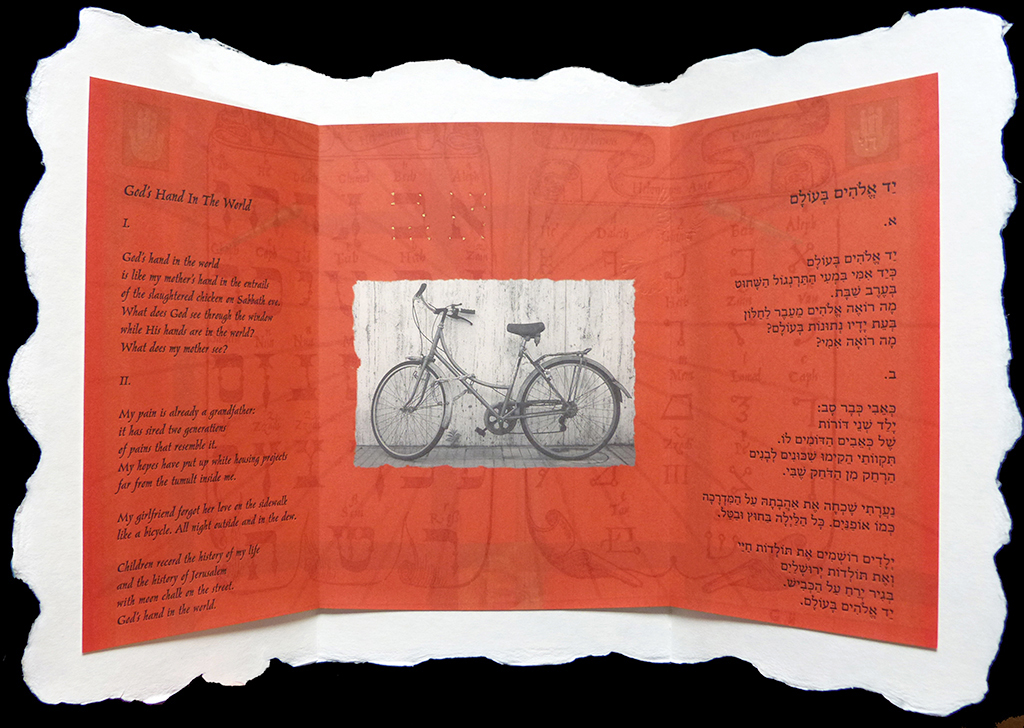
The Amichai Windows, The Jews, 2017, digital print in tryptich with letterpressed poem, 13 x 21 inches fully opened (plus poems with burned edges) 9
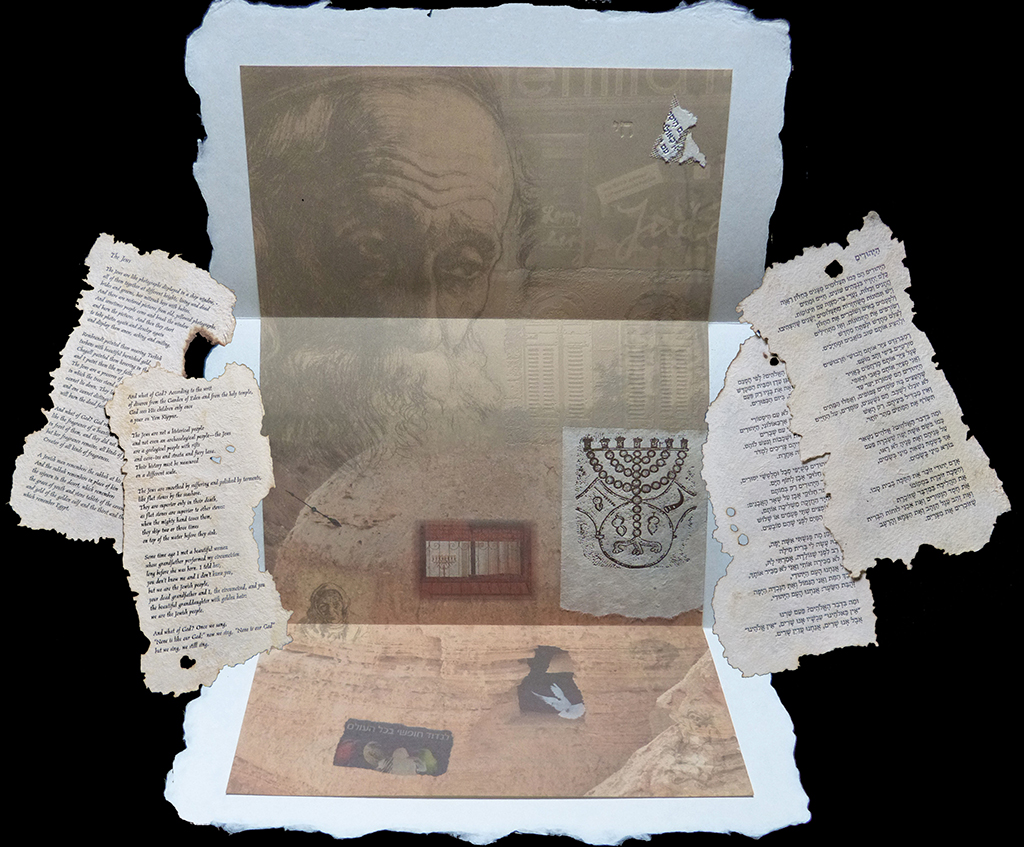
The Amichai Windows, detail of The Jews, 2017, digital print in tryptich with letterpressed poem, 13 x 21 inches fully opened
